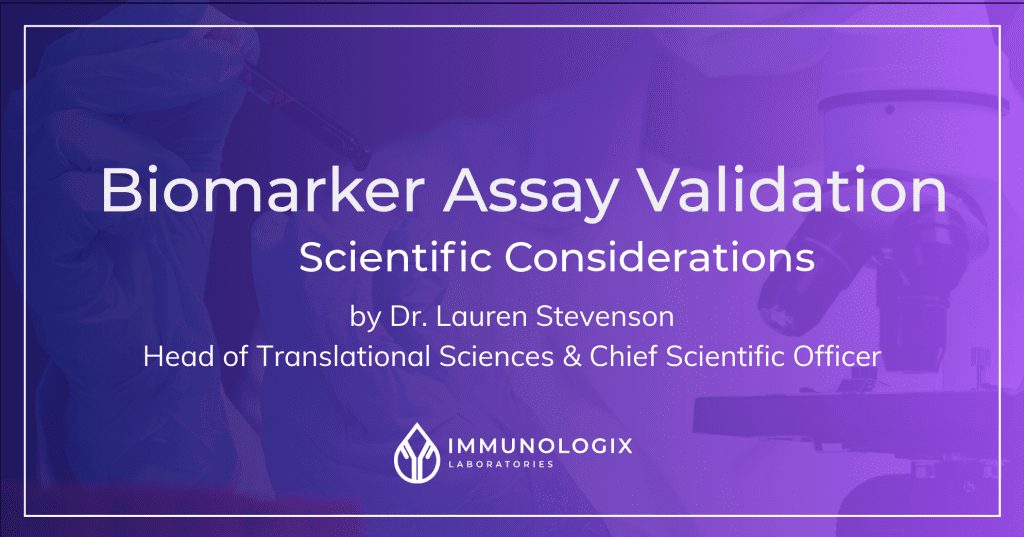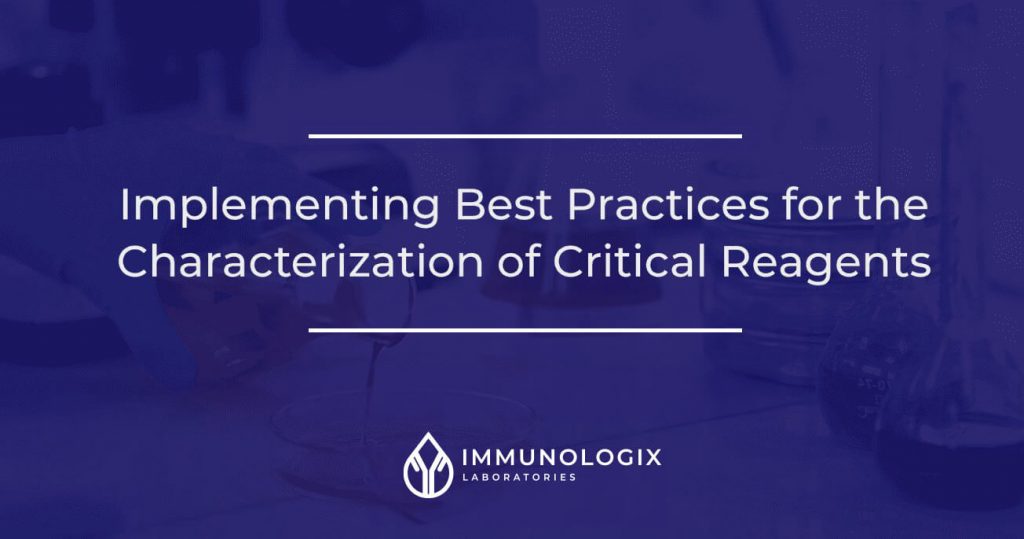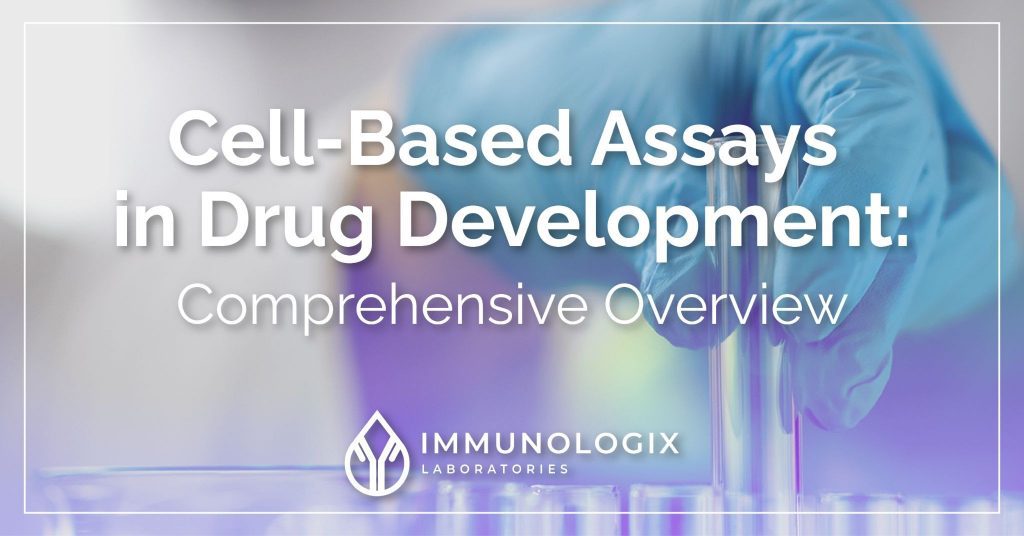Blog
Biomarker Assay Validation
Biomarker Assay Validation: Scientific Considerations As defined by the BeST glossary, a biomarker is a characteristic that is measured as an indicator of normal biological processes, pathogenic processes, or biological responses to an exposure or intervention, including therapeutic interventions. Bioanalytical method validation of biomarker assays ensures that the method reliably measures the biomarker of interest…
Implementing Best Practices for the Characterization of Critical Reagents
Years of bioanalytical assay development have established that the quality, consistency, and specificity of assay results depend largely on the critical reagents selected for development. Today, there is no guidance for the proper characterization of, testing requirements for, or the allowable batch variability in reagents used to support clinical studies. Because there is no regulatory…
Cell Based Assays in Drug Development: Comprehensive Overview
Cell-based assays and analysis play a vital role in every stage of the drug development process from early discovery, pre-clinical, clinical and post market commitment phases. Cell-based assays are an analytical measurement defined by a set of reagents that produce a detectable signal for quantifying a biological process. In this blog, we are going to cover…


